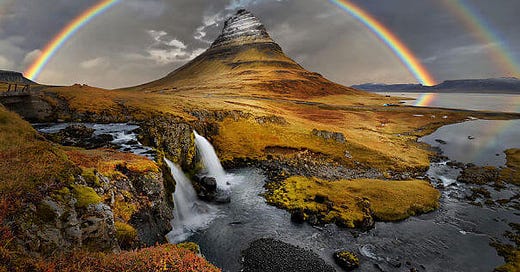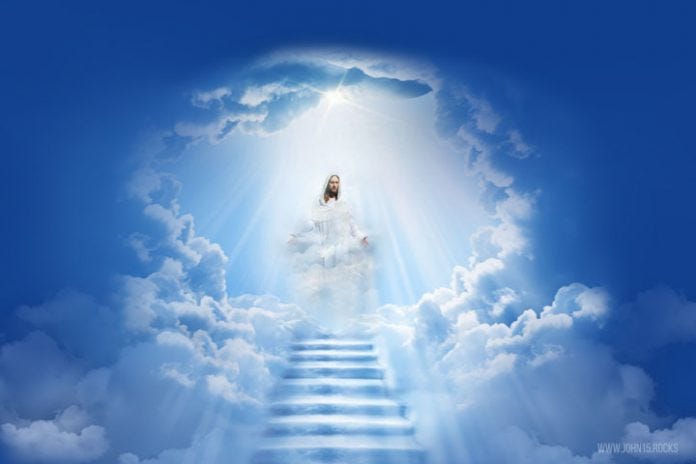What’s the Best Afterlife?
1. What Do You Do in Heaven?
When philosophers challenge traditional religions, they spend almost all of their attention on theism. We pay comparatively little attention to the various other traditional religious doctrines. This is maybe understandable, since theism is the most important and most philosophical part of religion. However, it is far from the most vulnerable major religious doctrine. Religious people say lots of other stuff that is much more ripe for criticism.
So here’s something that I think deserves more attention: the afterlife. (I bet if I look it up, I’ll see hundreds or thousands of articles about it. Still, I think it’s rarely what people talk about when they debate religion. It’s almost as if we think that if there’s a God, then the afterlife is no problem.) I think most of the people who believe in heaven, including Christians, Jews, & Muslims, haven’t thought it through very much. But I have long found the idea of heaven very dubious and puzzling.
What is supposed to happen in heaven? Do all the souls sit there praising God all day? Maybe they just passively bask in God’s glory? If it’s something like that, it doesn’t sound to me like much of a paradise. It sounds worse than a decent life here on Earth.
Keep in mind that the afterlife is eternal. Wouldn’t praising God or basking in his glory get old after the first 20 years of doing it nonstop, let alone the first million years? What if you’ve been doing it for a googol years?
When you think about it, it’s really hard to think of what could possibly be going on in heaven that would be good to do for eternity.
The Diamond Mountain is in Lower Pomerania. It takes an hour to climb it, an hour to go around it, and an hour to go down into it. Every hundred years a little bird comes and sharpens its beak on the mountain. And when the entire mountain is chiseled away, then the first second of eternity will have passed.
--The Brothers Grimm, “The Shepherd Boy”
2. Heaven & Theodicy
Theist: Wow, look how great this world is that God created!
Atheist: Eh, doesn’t seem that great to me. Why couldn’t He make one without all the pain & suffering?
T: Well, suffering is a consequence of human free will.
A: Couldn’t God have given us free will but still made sure we didn’t have any suffering?
T: Nope, that’s impossible. Or it would rob life of meaning. Or maybe the freedom to inflict suffering on others is so valuable that it outweighs the disvalue of suffering.
A: What about just limiting the amount of suffering that people could inflict on each other, to some fairly low level?
T: No, that wouldn’t work either. That would still rob life of meaning.
A: Hm, ok. Well, what about all the natural evils – you know, like natural disasters, cancer, and other stuff that isn’t produced by our choice?
T: Well, those things call forth virtuous responses from us, like compassion, fortitude, and courage. The exercise of these virtues is so valuable that it outweighs the disvalue of the pain & suffering we see around us.
A: Couldn’t we somehow exercise virtues without there being all that suffering?
T: Nope, impossible. The best virtues can only be exercised in the face of adversity.
A: Wow, okay. In that case, heaven must be full of severe pain and suffering, just like Earth.
T: No, it’s not! It’s a paradise!
A: Oh. So there’s little or no free will or virtue in heaven, then?
T: What? How do you figure?
A: Well, you just told me that it’s impossible to give humans free will without leaving open the possibility of suffering. Since there’s no suffering in heaven, that must mean that God takes away our free will when we get to heaven.
Also, you said suffering is necessary for people to exercise the best virtues. So we can’t exercise the best virtues in heaven, right? Since, as you also told me, free will and virtue are more important than pain and suffering, this must mean that heaven is overall worse than life on this Earth.
You also hinted that without suffering, life would be meaningless. So I guess our existence in heaven will be meaningless.
T: Um, that doesn’t sound right…
………
This isn’t just a challenge to the consistency of some theists’ views. Some of these theodicies are in fact plausible. It’s plausible that you can’t give beings meaningful free will and be assured that they will never hurt one another. It’s plausible that without the potential for suffering of any kind, certain virtues would go unexercised, and life would lack meaning. You don’t want to be plugged into an experience machine that gives you nothing but pleasure for the rest of your life. There would be no meaningful goals to strive for, no accomplishments, and nothing morally praiseworthy.
Those are genuine insights. But those insights go out the window when we indulge our passions in imagining an afterlife free of all adversity. Even if there is a God, it can’t be that he sends us to the supernatural equivalent of an experience machine for eternity.
(Note: This is not to say that those theodicies are successful after we eliminate heaven. There is still much that they fail to explain, but that’s not our topic now.)
3. Reincarnation > Heaven
What might God do instead?
It would make more sense for a god to send us back into the world, to live this sort of existence again. Each life involves meaningful struggles in the face of adversity, the exercise of free will, and the opportunity to exhibit virtue. It never gets old, because we forget everything at the end of each lifetime. It can go on for eternity in that way. (See http://fakenous.net/?p=128, https://youtu.be/qiZ0JhlSGKc.)




